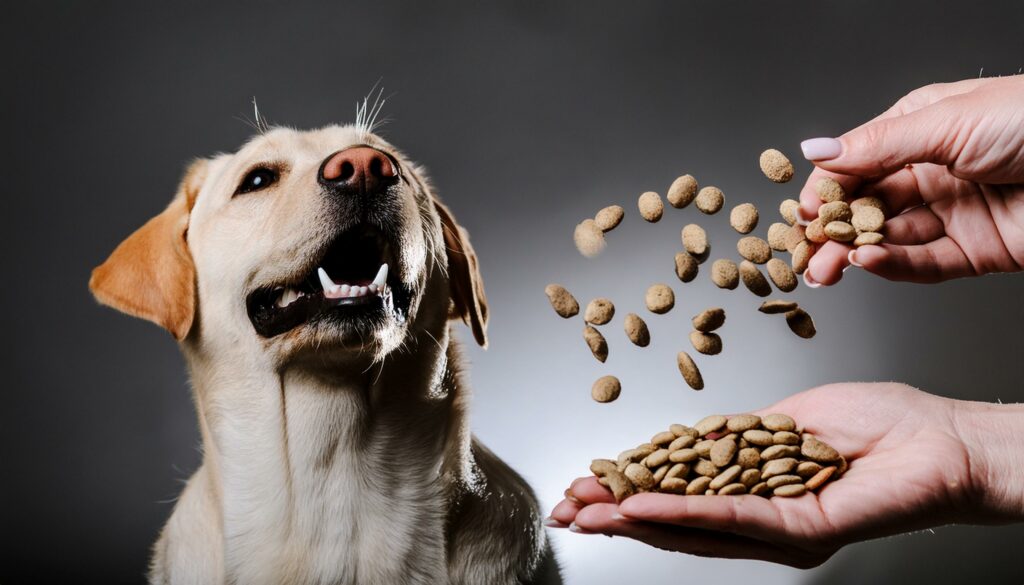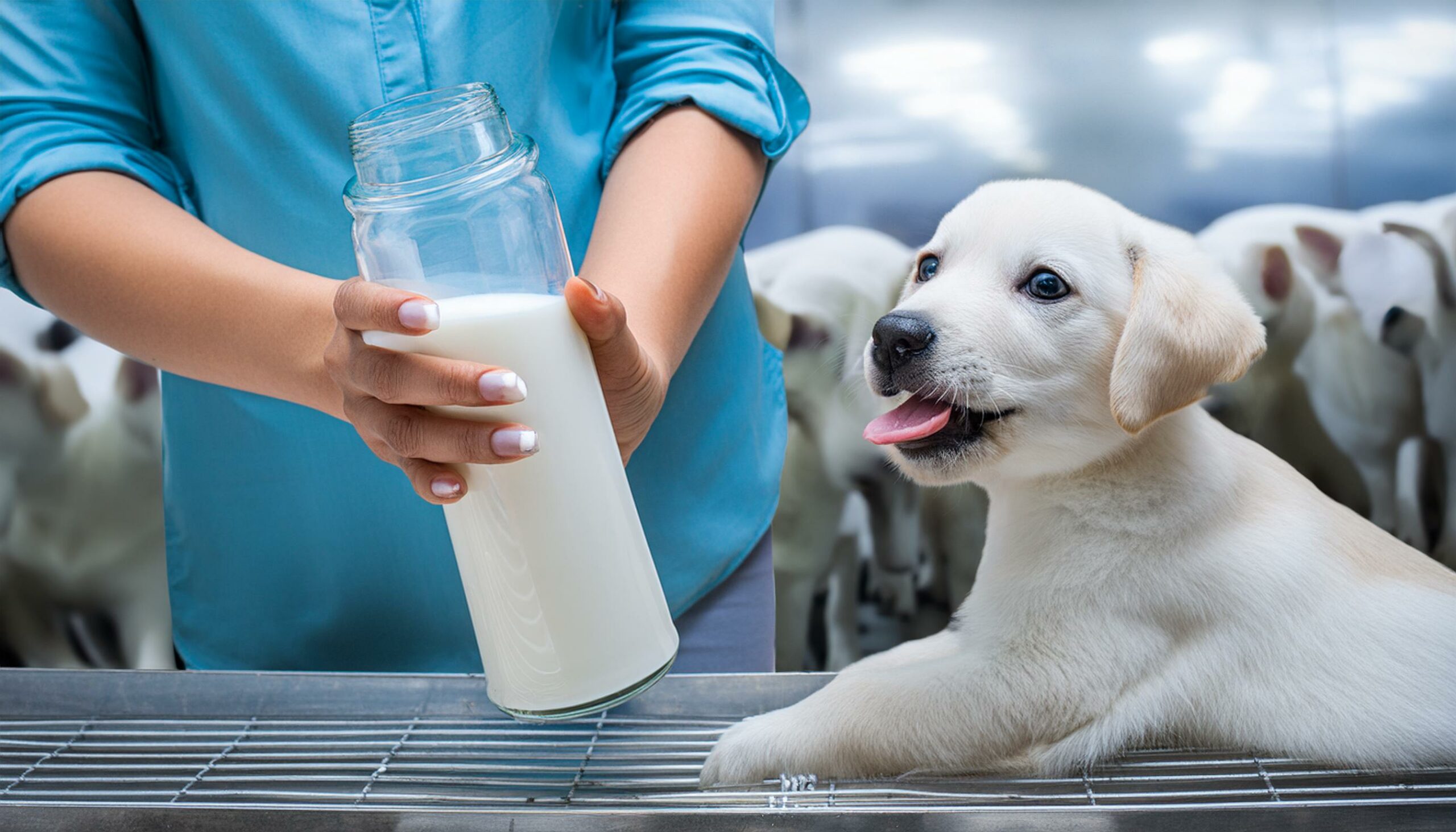Labradors, with their affable nature and boundless energy, often become cherished members of our families. As responsible pet owners, it’s natural to want to ensure they’re receiving the best nutrition possible. Among the many questions that arise about their diet, one common query is whether Labradors can safely consume milk. In this comprehensive guide, we’ll delve into the intricacies of Labradors’ nutritional needs and explore the question: Can Labradors drink milk?
Nutritional Needs of Labradors
Understanding the dietary requirements of Labradors is crucial before addressing their milk consumption. Like all dogs, Labradors need a well-balanced diet comprising proteins, fats, carbohydrates, vitamins, and minerals to maintain optimal health. While milk does contain some of these nutrients, it may not necessarily be the best choice for our furry friends.
Can Labradors Drink Milk?
Debunking Common Myths
There’s a widespread belief that dogs, including Labradors, can safely enjoy milk without any adverse effects. However, the reality is more nuanced. While some dogs may tolerate milk well, others could experience digestive issues due to lactose intolerance.
The Lactose Intolerance Factor
Similar to many adult mammals, Labradors can develop lactose intolerance as they age. Lactose intolerance arises when the body lacks lactase, the enzyme needed to digest lactose, the sugar found in milk. Without sufficient lactase, lactose remains undigested in the gut, leading to unpleasant symptoms like diarrhea, gas, and abdominal discomfort.
Potential Health Risks
Digestive Issues
One primary concern with feeding milk to Labradors is the risk of digestive upset. Even if your Labrador enjoys the taste of milk, consuming it could lead to gastrointestinal distress, including diarrhea and vomiting.
Obesity Concerns
Another potential issue is the calorie content of milk. While a small amount of milk as an occasional treat may not pose significant risks, excessive consumption can contribute to weight gain and obesity in Labradors. Obesity, in turn, can lead to various health problems such as joint issues, diabetes, and heart disease.
Alternatives to Milk

Given the potential risks associated with feeding milk to Labradors, it’s essential to explore safer alternatives that meet their dietary needs more effectively.
Water
The simplest and safest alternative to milk for Labradors is plain water. Adequate hydration is essential for your dog’s overall health and plays a vital role in numerous bodily functions.
Canine Milk Replacers
For those looking for a milk-like treat for their Labradors, commercially available canine milk replacers can be a suitable option. These products are specially formulated for dogs and are lactose-free, making them a safer choice for dogs with lactose intolerance.
How to Introduce New Foods to Labradors
When introducing new foods to your Labrador’s diet, it’s crucial to do so gradually and in moderation. Start by offering small amounts of the new food and monitor your dog for any adverse reactions. If your Labrador shows signs of digestive upset, discontinue the new food and consult your veterinarian for guidance.
Signs of Lactose Intolerance in Labradors
It’s essential to be vigilant for signs of lactose intolerance in Labradors, which may include diarrhea, gas, bloating, and abdominal discomfort after consuming milk or dairy products. If you suspect that your Labrador is lactose intolerant, avoid feeding them milk and dairy products and seek advice from your veterinarian.
Final Thoughts
While Labradors may enjoy the taste of milk, it’s essential to prioritize their health and well-being when considering their diet. Due to the risk of lactose intolerance and potential digestive issues, it’s advisable to limit or avoid feeding milk to Labradors altogether. Instead, focus on providing a balanced diet that meets their nutritional needs without compromising their health.
Conclusion
In conclusion, while Labradors may have a fondness for milk, it’s best to exercise caution and avoid feeding it to them regularly. The risk of lactose intolerance and potential digestive upset outweigh the benefits of milk consumption. By opting for safer alternatives and being mindful of your Labrador’s dietary needs, you can help ensure their long-term health and happiness.
FAQs
Is it safe for Labradors to drink milk in moderation?
While some Labradors may tolerate milk in small amounts, it’s best to avoid it due to the risk of lactose intolerance and digestive upset.
How can I tell if my Labrador is lactose intolerant?
Signs of lactose intolerance in Labradors include diarrhea, gas, bloating, and abdominal discomfort after consuming milk or dairy products.
What are some healthy alternatives to milk for Labradors?
Healthy alternatives to milk for Labradors include water and commercially available canine milk replacers that are lactose-free.
Can puppies drink milk?
While puppies may consume their mother’s milk during the nursing period, most puppies become lactose intolerant as they wean and should not consume cow’s milk.
Should I consult a vet before introducing new foods to my Labrador?
Yes, it’s always advisable to consult your veterinarian before making any significant changes to your Labrador’s diet to ensure their health and well-being.
